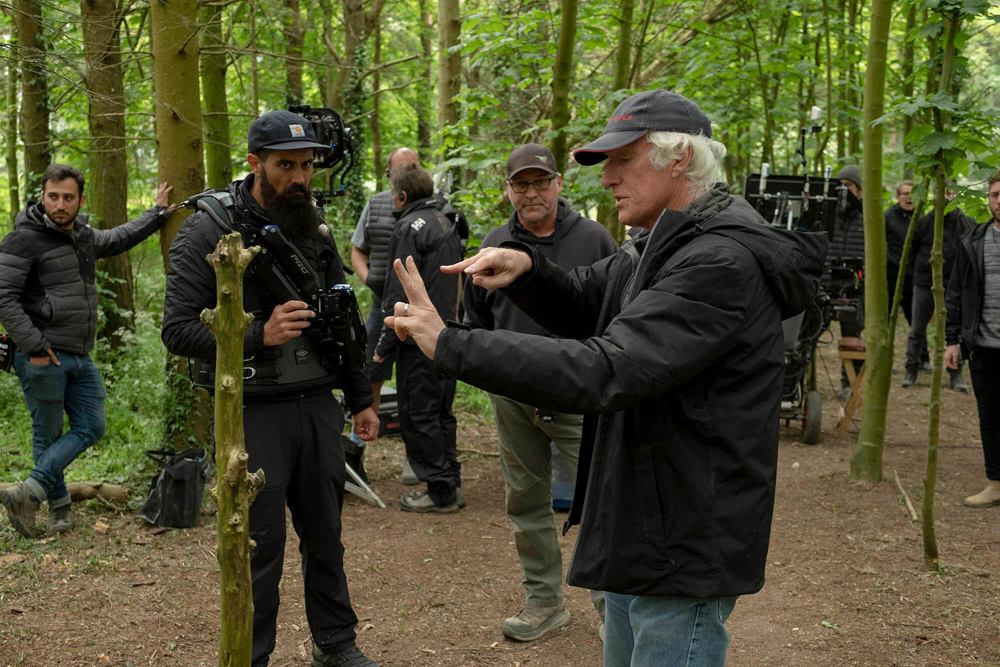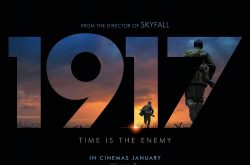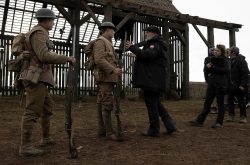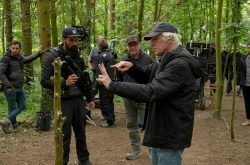Oscar winning director, Sam Mendes (American Beauty, Skyfall, Spectre), returns to our screens with his new-born and highly acclaimed war epic, 1917.
Historical War Films have always been very common in Hollywood, but what’s’ uncommon, is to see films set in World War I. Despite that, 1917 is not a historical re-enactment, but rather the result of Mendes’ vivid imagination combined with the real horrors of war.
The film stars George MacKay and Dean-Charles Chapman, accompanied by the supporting roles of Colin Firth, Benedict Cumberbatch, Andrew Scott, Mark Strong and Richard Madden.
Story
April 6th,1917
Two British soldiers, Lance Corporals Thomas Blake (Dean-Charles Chapman) and William Schofield (George MacKay), are lying down on an empty field, appreciating the shadow of a tree while allowing a soft breeze to comfort their restless souls during the hard times of war. As they cherish those precious moments of peace within nature’s sanctuary, they are disrupted by duty as they need to go on a mission.
You have a brother in the second battalion. They’re walking into a trap. Your orders are to deliver a message calling off tomorrow’s attack. If you fail, it will be a massacre.’
The two men are sent to embark on a journey, having about 8 hours to get from one part of the western front to the other. They must walk through No man’s land and cross into former German territory on a resurgence time, to deliver a message to Colonel McKenzie (Benedict Cumberbatch) that will save 1600 lives, Blake’s brother among them.
1917 is Mendes’ first screenplay, which he has co-written with Scottish screenwriter, Krysty Wilson- Cairns.
Sam was heavily influenced as a kid by his grandfather’s stories, a veteran of the war himself, and dedicated the film in his memory, as he was the main inspiration for 1917’s making.
Alfred Hubert Mendes, served in the British Army during World War I, on the western front as an infantry soldier in the trenches, and also performed the duties of a messenger. During World War I, communication between forces, was often done via telegraphs and rudimentary form of telephones. These forms of communication though, could easily be disrupted by the enemy, so in order to avoid such incidents, they had to deliver messages by hand.
Mendes wanted to shoot the film in real time, creating an immersive experience for the viewer, forcing him to become the third person in the mission. We are purposely unfamiliar with the two soldiers at the beginning of the film, because Mendes had planned a slow emotional investment to these characters, which is triggered as the story unfolds and they begin to share their personal stories with us.
The idea of making the whole film feel like a long continuous shot was essential, because Mendes believed that it will not only enhance the viewer’s experience, but also highlight the overall message of the film; there are no breaks in war, no time to rest or moments to mourn.
It took 6 months of rehearsals and planning, choreographing every move and syncing all actors, camera and landscape, and then about 80 days to shoot on location.
One of the industry’s best living cinematographers, Roger Deakins (Fargo, No Country For Old Men, Blade Runner 2049), was chosen to bring to life Mendes’ unshakable vision. His work in 1917, is a truly remarkable technical achievement, letting the camera move 360 degrees, while continuously following the characters without making any hard cuts, with the longest shot being about 9 minutes. The strict continuity of each scene, allowed the naturalism and rawness of performance to shine, making each moment of the film feel so real, as if we were taken back in time, experiencing the war ourselves as one of the soldiers.
Mendes has created a masterpiece of storytelling that does not only offer the viewer an intense and unique cinematic experience, but also honours all the veterans of war.
As for its accolades, 1917 has been nominated for 144 awards overall and has won 44 so far, with the most recent ones being 2 Golden Globes for Best Director and Best Picture, and 7 Bafta Awards out of their 9 nominations.
The film has also received 10 nominations at the 92nd Academy Awards, including Best Director, Best Picture, Best Cinematography and Best Original Screenplay.
Pictures taken from:
Words by Emilia Antoniadou for Grapevine Birmingham






